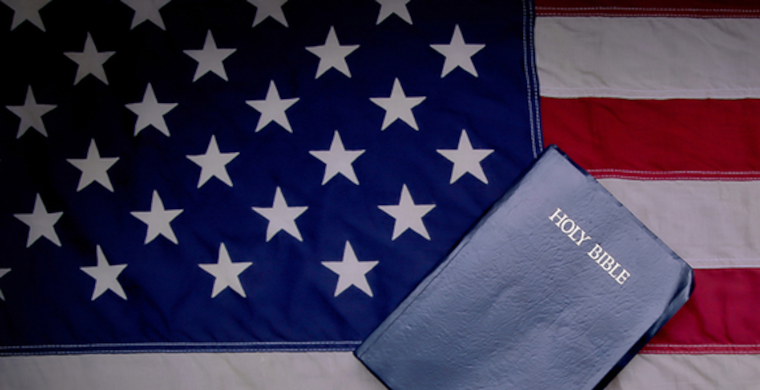MOORE WARNS OF US EVANGELICAL COLLAPSE
Evangelical America could collapse suddenly in the way that Roman Catholicism in Ireland did, influential US Christian leader Russell Moore is warning.
EN Staff
https://www.e-n.org.uk/
June 14, 2022
In a stark message to Bible-based believers in the States which will resonate in the UK and elsewhere, Moore warns that the church's perceived lack of 'moral credibility' could be disastrous.
And he adds: 'That which is lost can be very difficult to recover.'
Moore is a theologian, ethicist and preacher who was previously President of the Ethics and Religious Liberty Commission, the public-policy arm of the Southern Baptist Convention. He is now Director of the Public Theology Project in the US.
Writing in the context of the likely over-turning of landmark abortion ruling Roe v Wade by the US Supreme Court, Moore says: 'For pro-life Christians like me, the warning should be that it is possible to "win" and "lose" a culture of life at the very same time.'
He explains: 'The greatest danger here is not what focus groups or polling data say about abortion, but something that has nothing to do with abortion at all -- the moral credibility of the American church.
'To see a model of how possible it can be to "win" and "lose" a cultural debate at the same time, we need only look across the Atlantic to Ireland.
'A recent book by historian Fintan O'Toole examines the seemingly sudden collapse of Catholic cultural influence in the land of Saint Patrick, in ways that could be a premonition of what could happen to evangelical America,' Moore says.
He adds: 'O'Toole writes, for instance, about the unchallenged influence of the long-serving archbishop of Dublin, John Charles McQuaid. This influence was such that the archbishop could call a radio network to account for playing a song by Cole Porter--the lyrics of which ('I'm always true to you, darling, in my fashion') the cleric found to represent a 'circumscribed morality.
'One reviewer frames the matter bluntly, writing: "The only circumscribed morality McQuaid was prepared to tolerate was the abuse of young boys and girls by priests, and of women from many backgrounds by nuns in the infamous Magdalene Laundries".'
Moore continues: 'Although some evangelical leaders would tell us that language of "gaslighting" and "spiritual abuse" are just vague therapeutic slogans for the deconstructing, these terms describe perfectly what O'Toole saw in the abusive church systems in Ireland -- and they just as easily describe what many have experienced in American evangelical contexts.
'The end result -- perhaps for born-again America as for Catholic Ireland -- is a church with an inordinately powerful force of cultural influence, if not moral authority, that finds itself suddenly without the credibility to enforce its orthodoxy at all.
'The reason? People could not withstand what O'Toole calls the "most shocking realisation of all," which was "the recognition by most of the faithful that they were in fact much holier than their preachers, that they had a clearer sense of right and wrong, a more honest and intimate sense of love and compassion and decency".'
Moore states: "The church in Ireland is now a hollow presence culturally compared to what it once was. Abortion is now legal in Ireland, after a popular referendum in 2018 repealed the laws preventing it. Abortions are, in fact, free through the nation's public health service. Divorce, as of 2019, is liberalised as well.
'Many researchers believe that the cultural shifts in Ireland were due, in large part, to a backlash against the church itself. Was this backlash because of cultural forces of secularisation warring against the church? No. It was because people who once revered the church came to realise that the church did not itself believe what it taught.'
Moore concludes: 'Short-term cultural influence without moral authority can lead to some gains. But long term, those gains cannot be sustained. More importantly, what can be lost by an influential but carnal church is far more than what can be gained -- and that which is lost can be very difficult to recover.
'What the world needs most from evangelical America is that we be a people who really believe what we say. Whether the world agrees or disagrees with us on abortion, or any other matter, they need to see us love vulnerable children--whether in the womb, in abusive homes, in foster care, or in our own pews.
'They need us to stand for justice not only in the public arena but, more importantly, by holding ourselves to a high standard of integrity and accountability.
'They need us to demonstrate what we say we believe--that all of life is lived before the face of God and nothing can be covered up before the judgment seat of Christ. They need to witness the testimony that the new birth we claim is more than just a brand.
'Influence can be important, if it is used the right way. But credibility is more important still. And the next generation, born and unborn, is counting on us to recover it.'
Moore was writing in his Russell Moore Newsletter produced as part of his association with US magazine Christianity Today.














